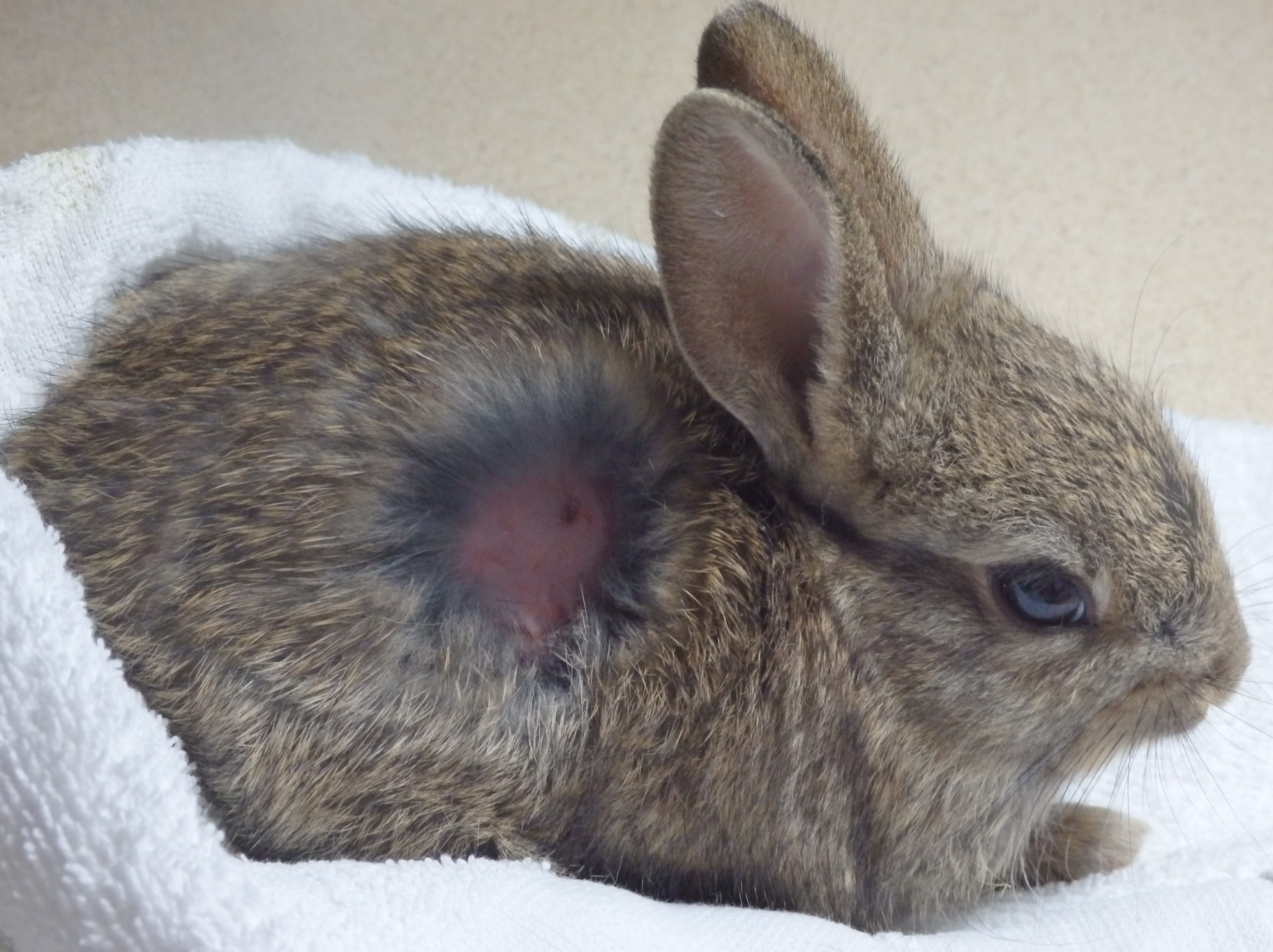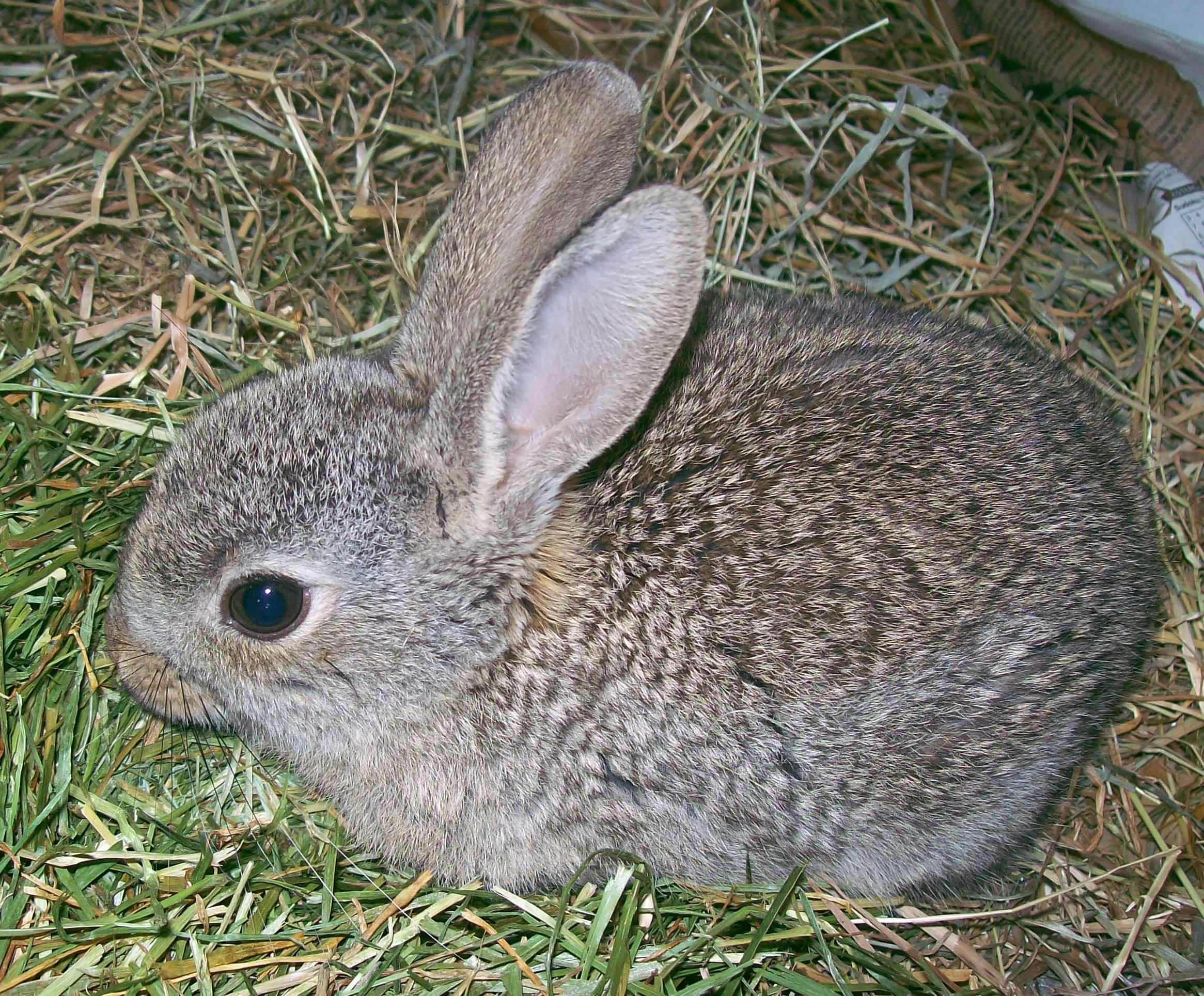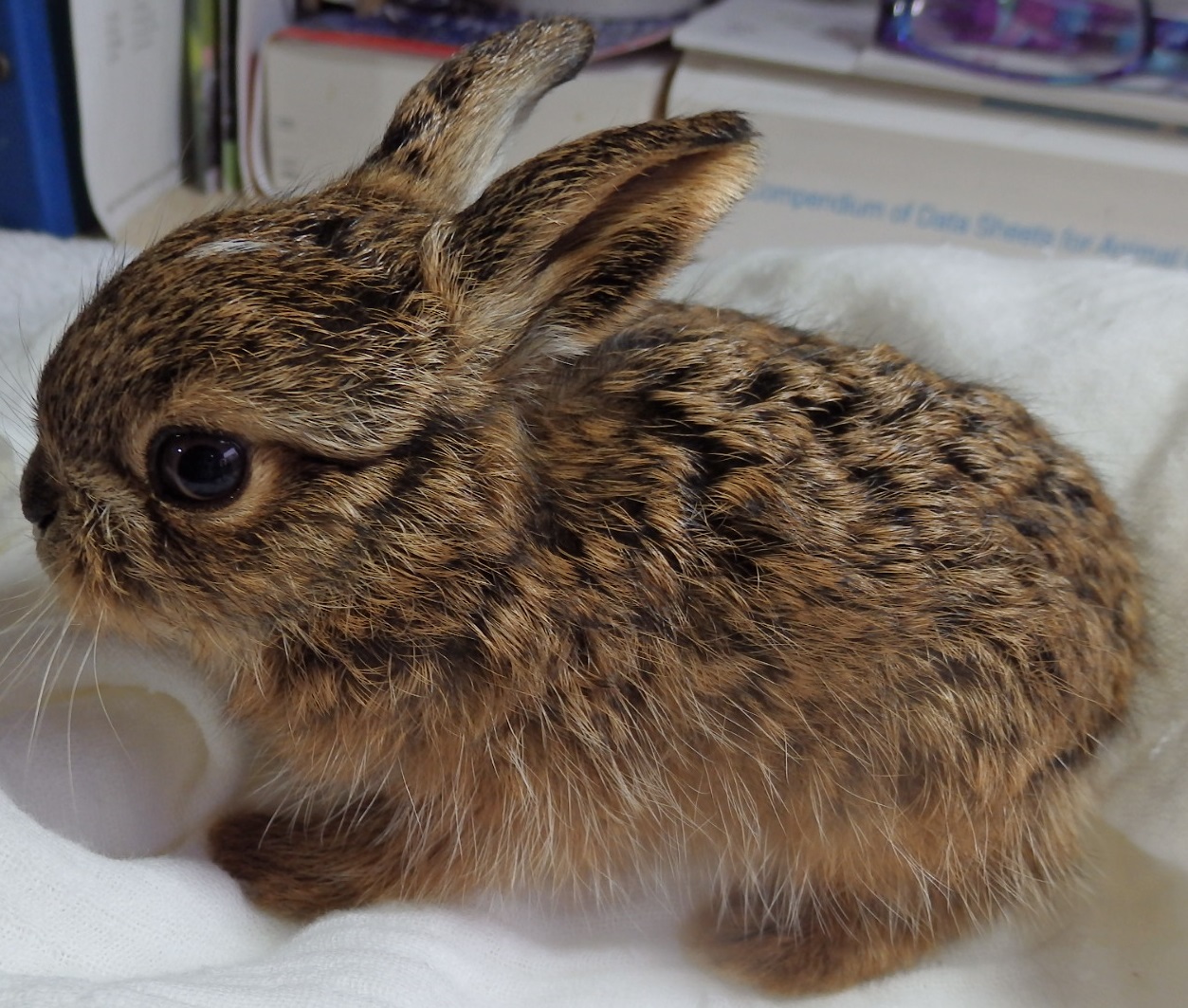When and how to help
If you should accidentally dig up, or find a destroyed nest of very young rabbit kits, they will need to be rescued immediately. Their mother will not return to move them and, if left, will quickly die. When young rabbits first venture above ground they are very vulnerable to predators and are often caught, and brought home, by the family cat.
Even if the young rabbit appears unharmed, as there are no visible injuries, PLEASE DON'T release it back into the wild. The fact that it has been in the cat's mouth and, with the potentially fatal bacteria that cat's carry in their saliva, the rabbit will require the protection of a course of antibiotics. With very young rabbits, ones with little fur and with their eyes closed, it's vitally important that they are kept warm. Place them in a dark container with a towel at the bottom. Fill a hot water bottle, or a plastic drinks bottle with very hot water, wrap it in a towel and place it in with the kits. Make sure the heat provided is comfortably warm, it may be necessary to adjust the water temperature to ensure the baby rabbits don't become overheated, or not warm enough. Place the box in a quiet area of the house away from any pets or children. If the young rabbit is well furred and has its eyes open, supportive warmth is usually unnecessary, unless the animal feels very cold or is soaking wet. Once again place the rabbit in a dark box, preferably with a lid, as older youngsters can jump pretty well. If you already have a rabbit, or guinea pig, place some of your pet's hay in the bottom of the box. Some fresh grass and a small slice of apple can be left in with the rabbit.


PLEASE DON'T leave a container of water in with the kit, this can very easily be knocked over, resulting in a very wet and cold casualty. If you haven't any hay available use a towel instead. Please don't use shavings or sawdust as the particles can easily get into the eyes, or wounds, of your rabbit casualty. Care must be taken when handling the young rabbit, if it's allowed to struggle too much with its hind legs the spine can become damaged, or you may receive a nasty scratch. ALWAYS support the rabbit's bottom and hind legs when handling is necessary. It's also important to be aware that a frightened rabbit may freeze prior to handling and then suddenly jump, resulting in the youngster being dropped, and possibly injured. Because both rabbits and hares are very stressful animals, once you have them safely contained in a dark box, disturb them as little as possible. Place them in a quiet warm area of the house away from children and pets.
If you do find a leveret and, mistakenly pick it up believing it's an orphan, return it to the exact spot you found it as quickly as possible. Using a handful of grass, rub this over the leveret's fur, this will help to mask your human scent. The mother will then not reject her baby when she returns to feed it. The only time a leveret will need your help is if its been caught by a domestic pet, is found weak and cold, is visibly injured, or is found beside its dead mother. Hares are very stressful animals, so if you have a sick or injured leveret, it should be placed in a quiet area in a dark box. Place a towel, or hay, in the bottom of the box and provide supportive warmth if the leveret Is cold or wet. As both rabbits and hares are difficult animals to hand rear we would always recommend that once emergency care has been given, you contact a wildlife rescue for further help and advice as quickly as possible.
